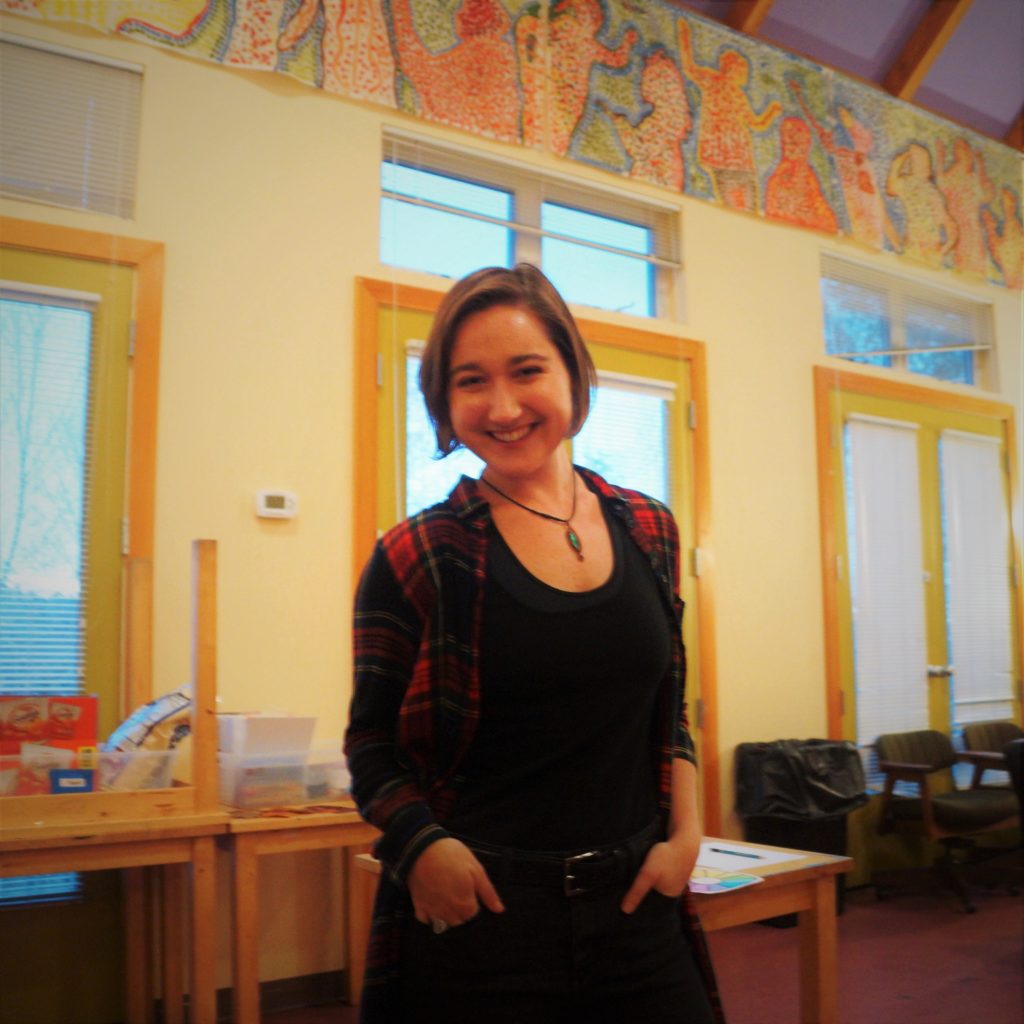Meet DNDA’s EcoArts Program Coordinator!
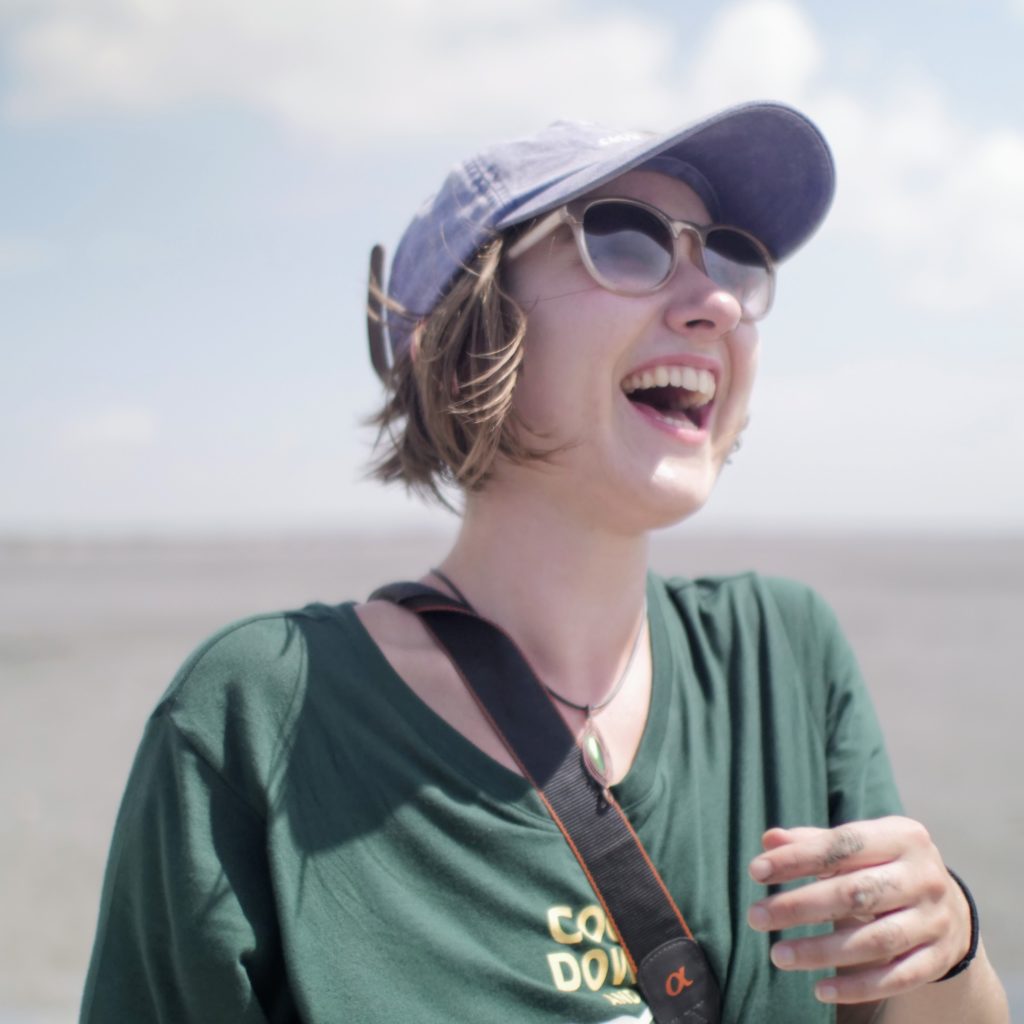
Hi! My name is Madison (or Maddy) and I am an AmeriCorps member positioned with DNDA until the end of August 2020. As their EcoArts Program Coordinator, I plan, implement, and facilitate art-based environmental education programs in the Delridge neighborhoods.
Imagine you are in a forest grove underneath a tunnel of intertwining branches. The afternoon light is trickling in through the leaves, highlighting the forest bed—if this autumn had been any wetter, this clearing could in fact be a stream. Now, insert children’s laughter, tables full of art supplies, cut-out paper salmon, and an atmosphere of creativity. This sets the stage for one of the EcoArts activities the Delridge Neighborhoods Development Association (DNDA) hosted this fall in West Seattle (see image below).
As their newly selected EcoArts Program Coordinator and AmeriCorps member, the primary way in which I serve the Delridge communities is through facilitating art activities inspired by nature or arts-based environmental education programs for youth and families.
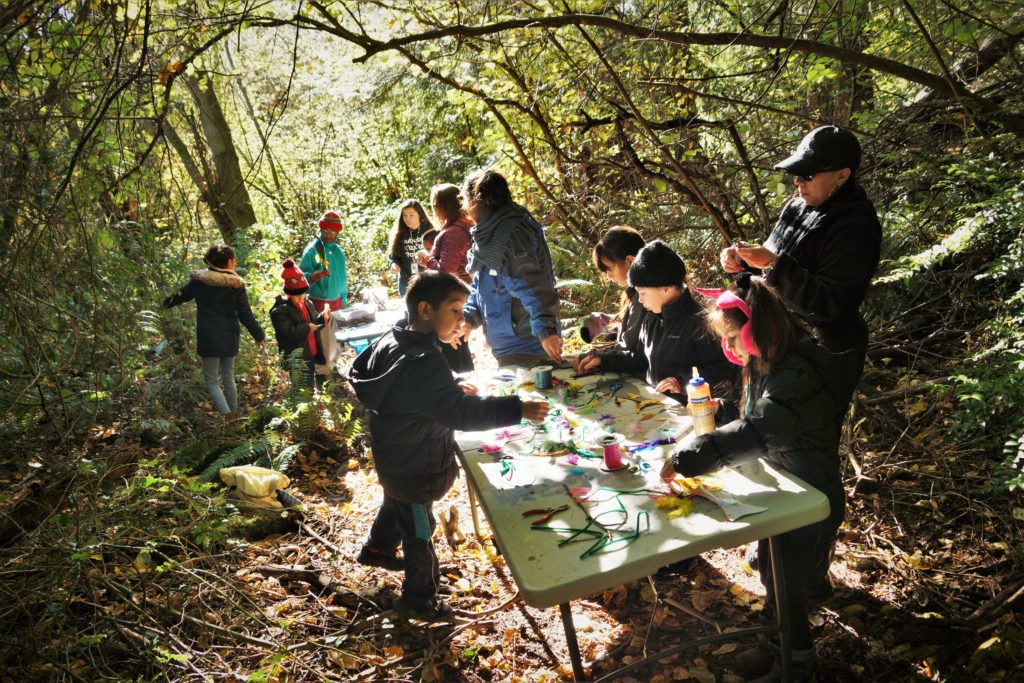
Youth participating in an EcoArts activity at Camp Long led by teaching artist Ari Glass. Using natural found materials and art supplies, the kids reflected on what they had learned about the salmon life cycle by decorating a paper cut-out salmon.
My name is Madison Rose Bristol, and I am a recent graduate of the University of Washington. I come from an interdisciplinary background with degrees in Dance and Environmental Science & Terrestrial Resource Management. Something that has come to fascinate me in recent years is seeing how art and environmental science can collide to create meaningful change in communities.
Needless to say, when DNDA offered me this position in early October, I was beyond thrilled and accepted the position on the spot. My first two months of service have exceeded all expectations, bringing me into spaces where youth are encouraged to express their truths, environmental education is approached through the lens of equity, and community is tantamount to everything else.
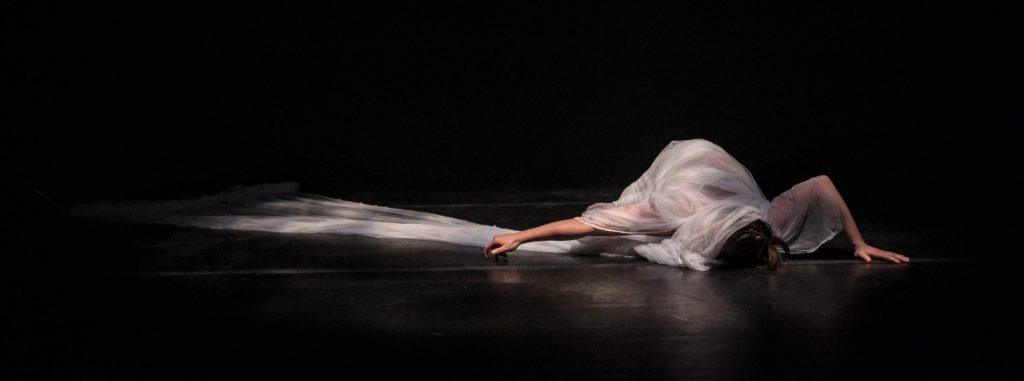
One of the ways in which I explored the intersections of art and the environment in college was with a piece I choreographed and performed in titled “Corralling dissonance/My name is Coral.” In this moment, I became wrapped up in cloth, embodying and personifying a bleaching coral struggling to withstand the environmental pressures of ocean acidification and rising temperatures.
DNDA is a unique non-profit organization that “integrates art, nature, and neighborhood to build and sustain a dynamic Delridge.” But who is Delridge? According to census data from 2010, 47% of the population in Delridge is non-white; more specifically, Delridge is home to many refugee and immigrant families. Other than English, the top languages Delridge families speak at home are Spanish, Tagalog, Somali, Amharic, Thigala, Chinese, Vietnamese, Japanese, and Creole. When I plan and implement EcoArts programs, I am primarily serving these populations in affordable housing units managed by Seattle Housing Authority (SHA) and DNDA itself.
Being welcomed into these community spaces has given me the opportunity to see the Seattle that isn’t widely talked about—the Seattle that is of the people instead of the economy, the Seattle that has been historically disenfranchised. Seeing as I am a white woman, I am grateful to have coworkers within DNDA who are helping me learn the nuances of different cultures, so I can step into new spaces for the rest of the year respecting people’s customs and serving them on their terms.

DNDA resides on the land of the Duwamish Tribe—and in honoring the history of this place and its people, DNDA provides regular educational opportunities to its employees. A couple of weeks ago we went on a boat tour of the Duwamish River to learn about its Superfund status and the relationship Native Americans have to this sacred waterway.
The programming I have helped bring to Delridge communities so far has mostly consisted of visual arts activities at DNDA’s Croft Place Townhomes, SHA’s High Point Neighborhood House, and Camp Long. From decorating paper salmon with found natural materials and art supplies to painting holiday masks and pumpkins, the kids readily throw themselves into whatever activity we put in front of them. I often find myself participating in these activities, reconnecting to my childlike curiosity. In the future, I am hoping to not only bring teaching artists to these communities with lessons catered to youth interests, but to teach dance, photography, and visual arts classes rooted in environmental storytelling and sustainability.
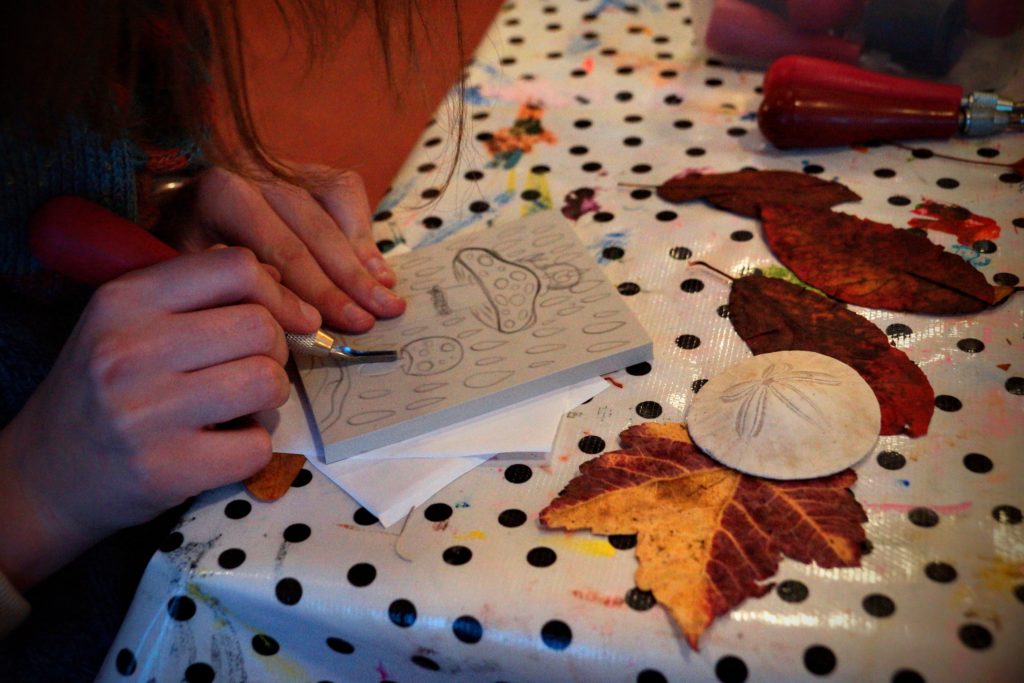
Our most recent EcoArts class was led by teaching artist Jules Hepp, who taught the kids at Croft Place how to make cards through block printing. Designs were inspired by local flora and fauna and books on indigenous storytelling. Featured here is Molly Duttry, carving out an Amanita muscaria fungi.
EcoArts classes are not just about sparking creativity—they provide a space for youth to connect to each other and the environment. I believe that art has the unique ability to strengthen the connective ties we all have to the world around us. When people are faced with adversity, these ties are what make communities and individuals resilient. These ties propel people forward, boldly advocating for a more equitable world. I am excited to witness the beauty we will create together in Delridge throughout the rest of my term of service.
Written by Madison Bristol, Washington Service Corps (WSC) EcoArts Engagement Coordinator

